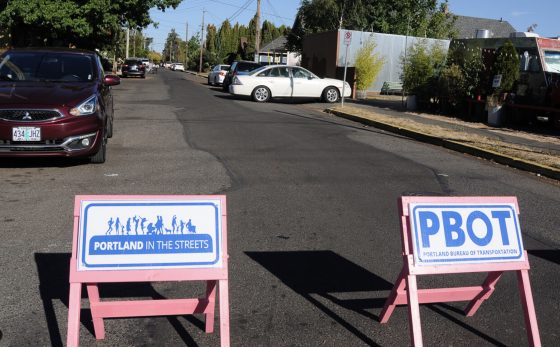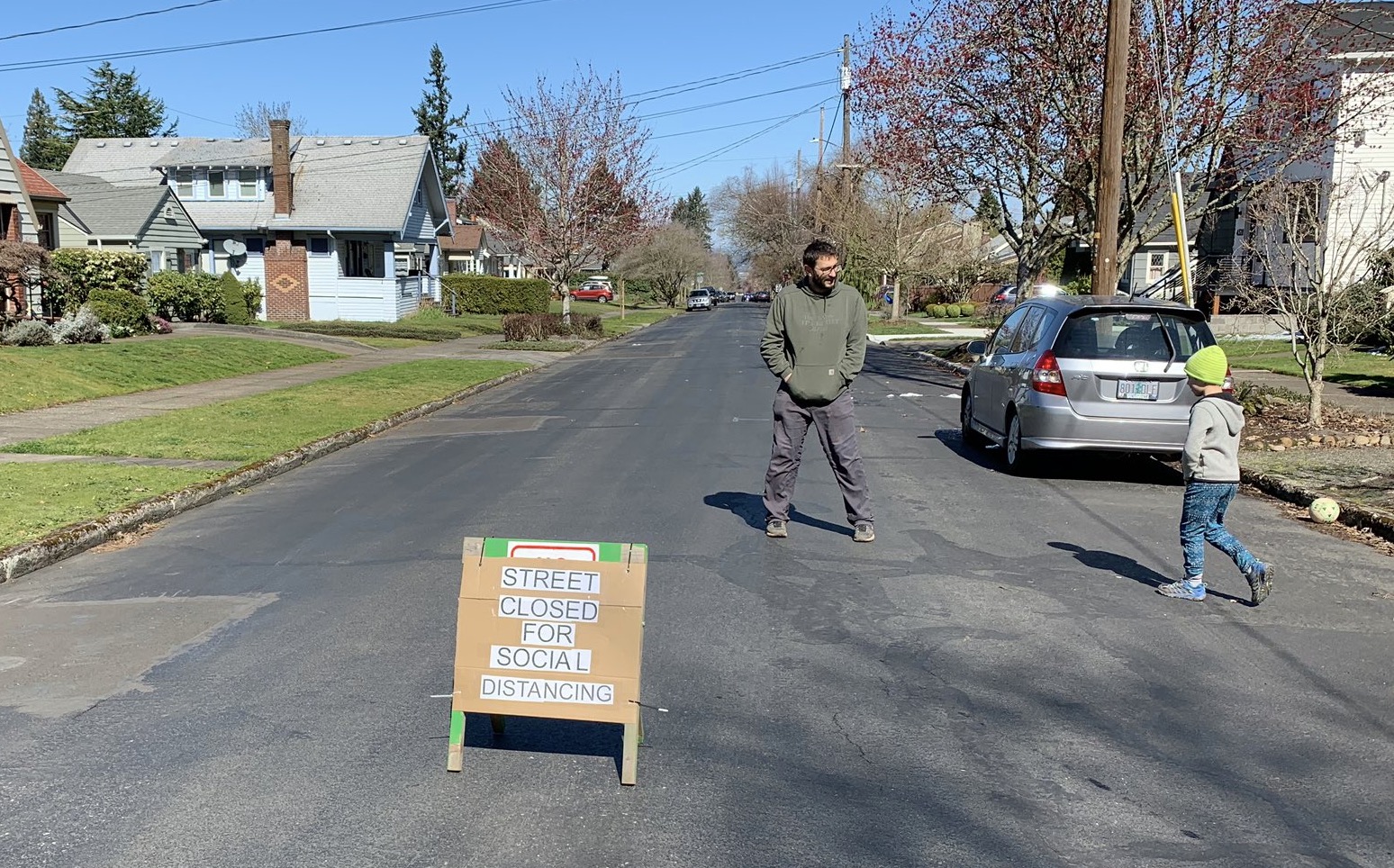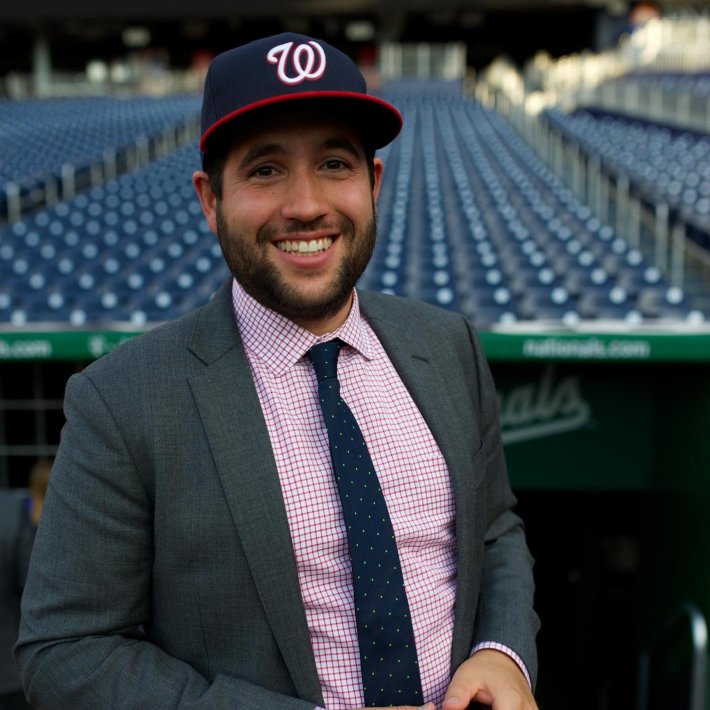Editor's Note: This story originally appeared on Bike Portland is republished here with permission. While this author is advocating for Open Streets-style events in his own community, we think this is a great idea for any city coping with the ongoing COVID-19 outbreak — and will remain a great idea after the crisis has subsided.
We have entered uncharted territory here in Portland and in the United States. We are living through the most severe pandemic to hit in our lifetimes. Since Thursday, when Governor Brown announced the large gathering ban and social distancing, request going out in public has felt much different. I was happy to see so many people out and walking outside this weekend to get fresh air and some exercise.
But while walking with my family I realized it was impossible to follow CDC’s recommended six-foot distance to avoid person-to-person contact. Then I noticed how little space we have in our neighborhoods for walkers, runners, and everyone else who uses sidewalks.
With fewer people commuting to work, school and other events over the coming weeks, what if we encourage more neighborhood-level open streets that allow for passive, outdoor activities while still enabling safe social distancing? I think it’s time we made some streets (mostly) carfree streets during this pandemic and I’ve started a petition to tell Mayor Ted Wheeler and other local leaders about it.

During our time of social isolation, our community still needs physical activity and fresh air. Our network of neighborhood greenways should be car-free while we are in a state of emergency. This would allow for ample open space for people not using cars. People could enjoy safe social distancing without the threat of being run over by drivers.
What would this look like? We could start with plans already created by people in our community.
In 2016 BikePortland shared Terry Dublinski-Milton’s idea of a diverter at every intersection where neighborhood greenway crossed a larger street. And Dublinski-Milton helped author a called Diversion on Bikeways as Urban Form (PDF) in 2018 with local planner Garlynn Woodsong (Land Use & Transportation Committee chair for the Concordia Neighborhood Association and the Planning and Development Partner at the Portland planning firm Cascadia Partners, LLC). That plan calls for diverters every two blocks that allow for local residents using cars to access driveways and parking spaces, but not to cut through the neighborhood. The idea is for drivers to stay on larger, arterial and collector roads and leave neighborhood streets for, well, neighbors. We could use existing materials for diverters like planters, traffic cones, barricades, jersey barriers and signs.
What do you think? Portlanders: if you like this idea, please consider signing this petition to Mayor Wheeler, Bureau of Transportation Commissioner and PBOT Director Chris Warner.







